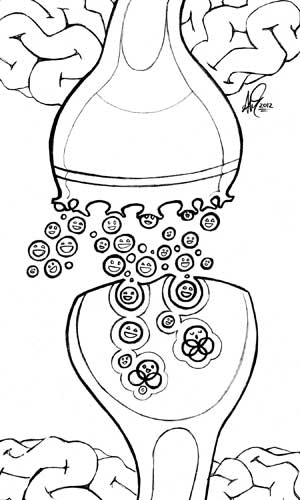 Jack suffered from chronic depression ever since losing his job during the recession. He is very fortunate to have a wife who works full-time and supports him both emotionally and financially. Cindy’s full-time employment was supposed to last only until Jack got back on his feet so they could start a family. However, it has been five years and Jack is still unemployed and depressed. He tried various antidepressants but most didn’t help at all, and others only helped for a short while.
Jack suffered from chronic depression ever since losing his job during the recession. He is very fortunate to have a wife who works full-time and supports him both emotionally and financially. Cindy’s full-time employment was supposed to last only until Jack got back on his feet so they could start a family. However, it has been five years and Jack is still unemployed and depressed. He tried various antidepressants but most didn’t help at all, and others only helped for a short while.
Jack could not motivate himself, derive joy from anything, or do anything that required brain function without fatiguing immediately. He had exhausted all pharmaceutical options, and his brain was still not working. Cindy was a champion and began pursuing alternative options for Jack. She would not give up, and eventually they landed in my practice.
After a detailed history and examination, it was clear to me Jack suffered from numerous neurochemical imbalances. Many factors related to his diet and brain chemistry were in need of drastic help. Fortunately for Jack, Cindy was able to help him change his diet and make sure he took his supplements during the day. Jack began to feel better and became more active and social. As he became more functional he made a major breakthrough and began exercising again. It took many months and many drastic changes to his diet and lifestyle with the support of his wife, but Jack finally came out of his black hole and regained his brain function.
I share Jack’s story with you for several reasons. First, Jack is like many people with chronic depression and poor brain function who continue to suffer from chronic depression despite trying all the pharmaceutical options. Second, Jack was fortunate enough to have a family member stick with him and get him the help he needed to improve his brain health. Unfortunately, many people who suffer from chronic depression do not have someone supportive to help them out of their dark hole of depression. Lastly, diet, nutrition, botanicals, exercise, and lifestyle can profoundly impact brain chemistry in a way most medications cannot.
As a matter of fact, exercise alone is one of the most profound ways to increase your brain neurotransmitter levels. It has been consistently found to be as good and even better than medication at relieving depression. Exercise raises brain levels of the neurotransmitters dopamine, norepinephrine, and serotonin, which impact mood. It also increases endorphin levels and increases blood flow to the brain. There are no antidepressants that have been shown to impact the brain in as many positive ways as exercise can.
In the next few chapters I will discuss the basic concepts of neurotransmitters and how diet, nutrition, and natural compounds can influence their function. If your brain is not working well, you really need to make sure your neurotransmitter signaling system is functioning well. I will describe each of the main neurotransmitters in detail later, but this chapter will focus on some fundamental concepts of neurotransmitters that may explain why your brain may not be functioning as well as it should.
Datis Kharrazian, DC, DHSc, MS, MNeuroSci
